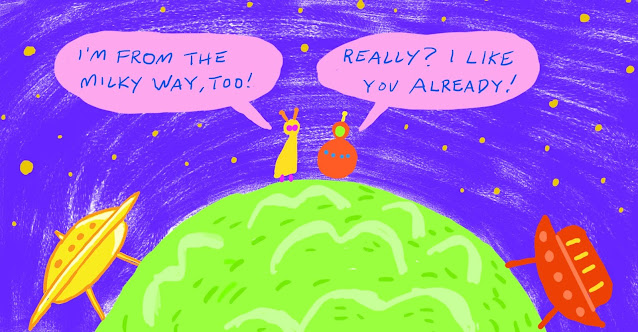Explain Nation: The Origins of Bias
Bias was and still is meant for the survival of our genes.
In the beginning, our ancestor animals knew there were a million ways to die. When looking for food or just enjoying the sunshine, they looked like meals to a tiger. Later on in evolution, tribes often competed for food and killed each other. So, people learned to trust only those from their own family and village.
Most mammals lived with “family” and in herds. People lived with family and tribes in villages. When with trusted ones, the brain produced oxytocin, the brain chemical that made them feel good and relaxed. When animals and people strayed away from their circle of trust, oxytocin dropped and the hormone cortisol would rise to give them a bad feeling. They would then be compelled to go back to the herd or family for that nice oxytocin fix again. That’s how the survival mechanism worked.
We have inherited the instinct.
Up to now, we have a predictive brain. It makes us feel uncomfortable when with people or in a situation that makes us feel less secure. That is the reason why we lean always towards family or people that we know. When in a foreign land, we almost always have an instant affinity with people from our own country. Unless you’re a fugitive, of course! The same effect happens when we are in a new school or in a new office. We look for people who are “similar” to us. They may be someone we have known before or a fellow newcomer. In experiments cited by cognitive science professor Paul Bloom, he observed that even babies gravitated toward babies with the same skin color.
Experts say that our oxytocin also rises when we are with people having the same interests. That’s why we feel good in hobby clubs. On social media, we feel better when we are affirmed by people who support our views on politics, religion, or music and fashion.
Bias is a mental shortcut. With products, for example, we choose the brand we have previously liked because we don’t have the time and money to try all others.
Neuroscience professor David J. Linden observed that love can make us perceive the loved one as better, smarter, kinder, or more good-looking than they truly are. This applies not only to romantic partners but also to members of the family or larger groups. Don’t we always say “you’re the best dad in the world” as though we’ve had ten thousand daddies? When watching a Miss Universe pageant, we tend to think that our bet is the prettiest and smartest of them all.
Evolutionary scientists say animals and humans developed partiality to family and then to the tribe because they're the circles that ensure the propagation of their genes.
As you can see, the survival instinct has such side effects. In this age of the rational human, bias makes us make irrational decisions.
In elections, for example, many vote for someone from their town. Maybe because they are biased to perceive them as the best, or because they vote for self-preservation.
Many experiments and actual cases have shown that public opinion and witness accounts are influenced by bias, be it from cultural values or political affiliation. With bias, a conclusion happens before careful and objective evaluation.
Bias is hard to shake off because changing one’s belief is inconvenient. You may need to change your friends, your habits, your address, etc. That’s a lot of stress. So, biased people don’t open themselves to new knowledge. They only read publications or social media that reinforce their current beliefs. It’s called confirmation bias. It’s also called willful blindness. When they listen to contrary knowledge, they listen to fight, not to learn. Arguing is a waste of your time! So, don’t question me now.
I recently had a talk at the UST Angelicum College. I advised students to check their bias. When they see interesting social media content that either supports their views or criticizes the rival camp, they must verify first before sharing. Two other speakers, both respected journalists, also said that responsible journalists always verify, verify, verify.
Verify this, too!
References and Suggested readings:
Constant Battles: Why We Fight by Steven A. LeBlanc with Katherine E. Register
How Emotions Are Made: The Secret Life of the Brain by Lisa Feldman Barrett
Just Babies: The Origins of Good and Evil by Paul Bloom
Moral Origins: The Evolution of Virtue, Altruism, and Shame by Chritopher Boem
Psychological Triggers by Peter Hollins
The Compass of Pleasure by David J. Linden
The Science of Positivity: Stop Negative Patterns by Changing Your Brain Chemistry by Loretta Graziano Breuning
Unfair: The New Science of Criminal Injustice by Adam Benforado
Willful Blindness: Why We Ignore the Obvious at Our Peril by Margaret Hefferman




Comments
Post a Comment